Managing Dementia: How Family Carers in North Devon Navigate Daily Life with Support and Confidence

If you’re supporting a loved one with dementia in North Devon, you’re not alone—and there is help available. Dementia can bring emotional and practical challenges, from managing memory loss and changes in behaviour to navigating daily routines and care needs. As Dementia Action Week (19–25 May 2025) reminds us, this is a time to reflect, raise awareness, and reach out for support. Across Barnstaple, Bideford, South Molton, and the surrounding communities, families are finding ways to cope with dementia while preserving connection, comfort, and dignity.
At Home Instead North Devon & Exmoor, we understand how much commitment and care this journey takes. In the sections below, we share practical strategies and local resources to help families feel more supported, day by day.
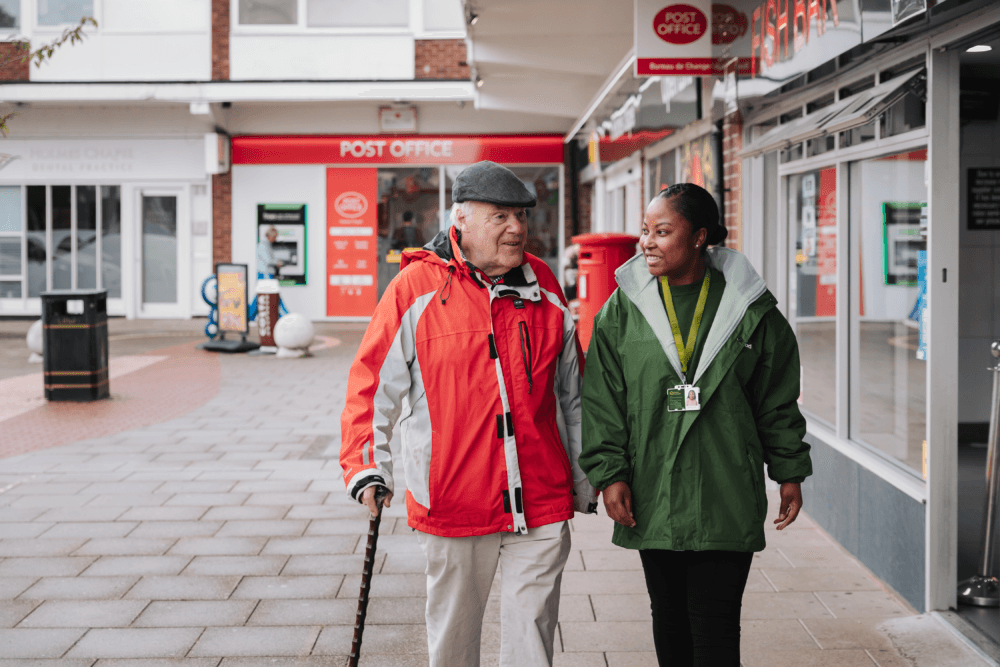
Building Routines That Provide Comfort and Clarity
One of the most helpful things you can do is establish a predictable daily routine. Dementia can make things hard to place in time, and small disruptions can lead to anxiety. Keeping tasks like getting dressed, eating meals, and enjoying a walk at the same time each day can help reduce confusion.
In North Devon, we’ve seen how small adjustments—like visual schedules, large-font calendars, and verbal reminders—can make a big difference. During care, always encourage the person to do what they can for themselves. Saving a few seconds here or there will over time increase dependence on the carer, whereas encouraging independence can also reduce irritability and frustration, as it maintains a greater sense of purpose. Lay out simple clothing, use Velcro fastenings, and give one-step instructions if they need that support. When it comes to bathing, safety and dignity go hand in hand. Use non-slip mats, shower chairs, and warm towels to create a calm environment.
Meals are another opportunity to create structure. Keep the dining space consistent and serve familiar food in a quiet setting. Use brightly coloured plates to help food stand out and offer meals slowly, without rushing.
How We’re Supporting Families During Dementia Action Week 2025
As as precursor to Dementia Action Week (19–25 May 2025), Home Instead North Devon & Exmoor is proud to support our community with an “End of the Pier” Show at the Pier House in Westward Ho!, that is being co-produced with the Kook Ensemble, and will feature the first public performance by the Red Robins, the choir of our own Bideford Musical Memory cafe, as well as the Applecorers Sea Shanty group. All memory cafes across North Devon are attending, and a number of organisations have contributed funds to transport everyone there for free. Thanks to Bideford Rotary Club, South Molton Rotary Club, Barnstaple Rotary Club and Barnstaple Link Rotary club, West Quay Fundraisers, Bideford Bridge Trust and Barnstaple Bridge Trust for their support.
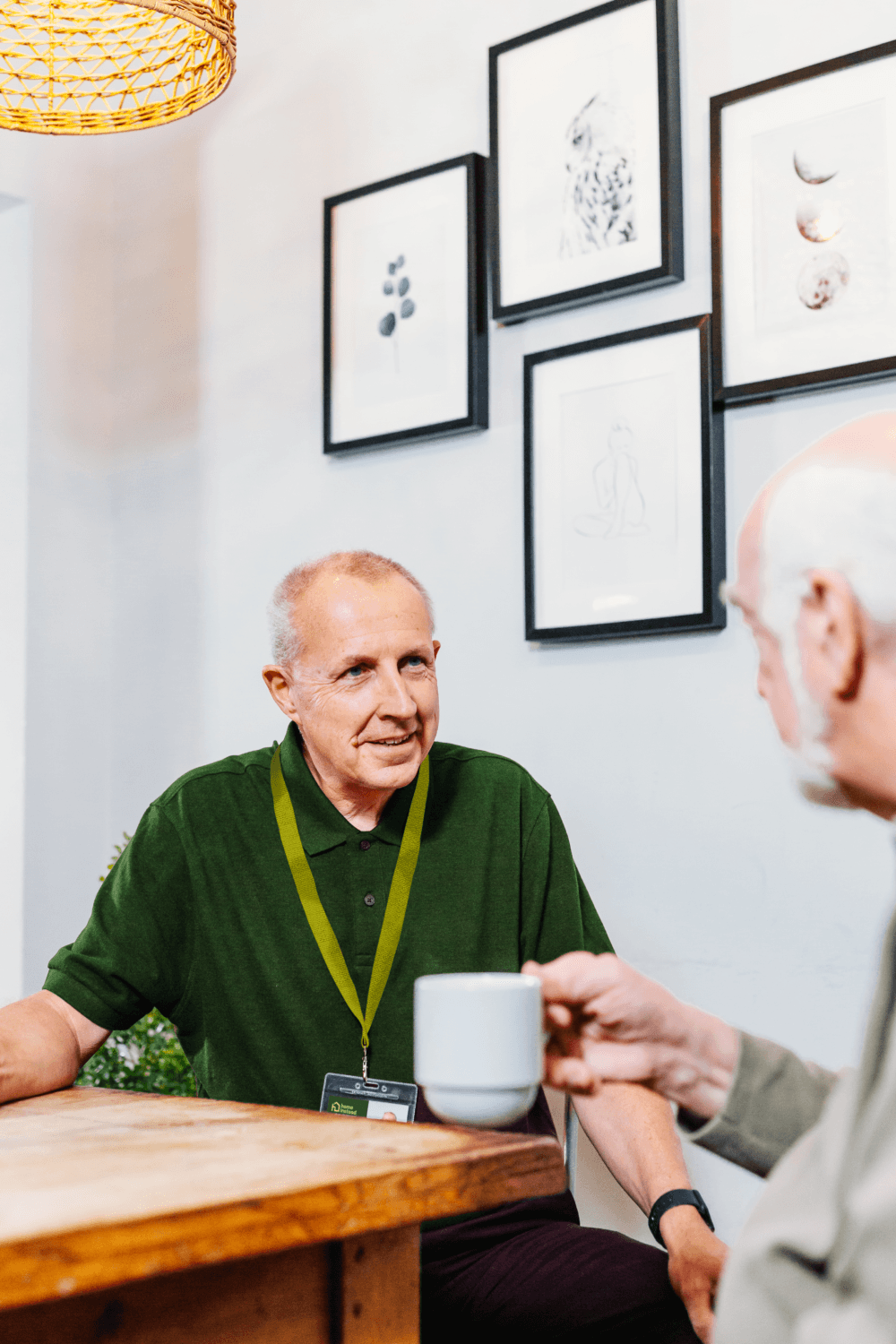
Communicating with Patience and Understanding
If your loved one repeats the same question or forgets where they are, it can be hard not to feel frustrated. But dementia affects how people process information and language.
Speak gently and clearly. Use their name, keep eye contact, and use short sentences. More than words, your tone and expression matter. A calm voice and a warm smile can go much further than detailed explanations.
If they become distressed, try redirecting their attention. Look through old photos, play their favourite music, or bring out a sensory object like a soft blanket or familiar scent. These small gestures often restore a sense of calm.

Keeping Minds and Bodies Active
Physical activity doesn’t have to be strenuous. A walk around the garden, stretching at the table, or folding laundry together helps keep the body moving and gives a sense of achievement. In North Devon, we’re lucky to have green spaces and coastal paths that offer gentle outings for those who are able, or have mobility options.
Music, too, can be powerful. Many carers find that a familiar tune calms nerves and lifts spirits. Encourage singing, clapping along, or tapping feet—these responses can continue even when speech begins to fade.
Nutrition plays a key role in wellbeing. Involve your loved one in choosing ingredients or helping with simple food prep, such as peeling potatoes. This sense of participation helps maintain dignity and routine.
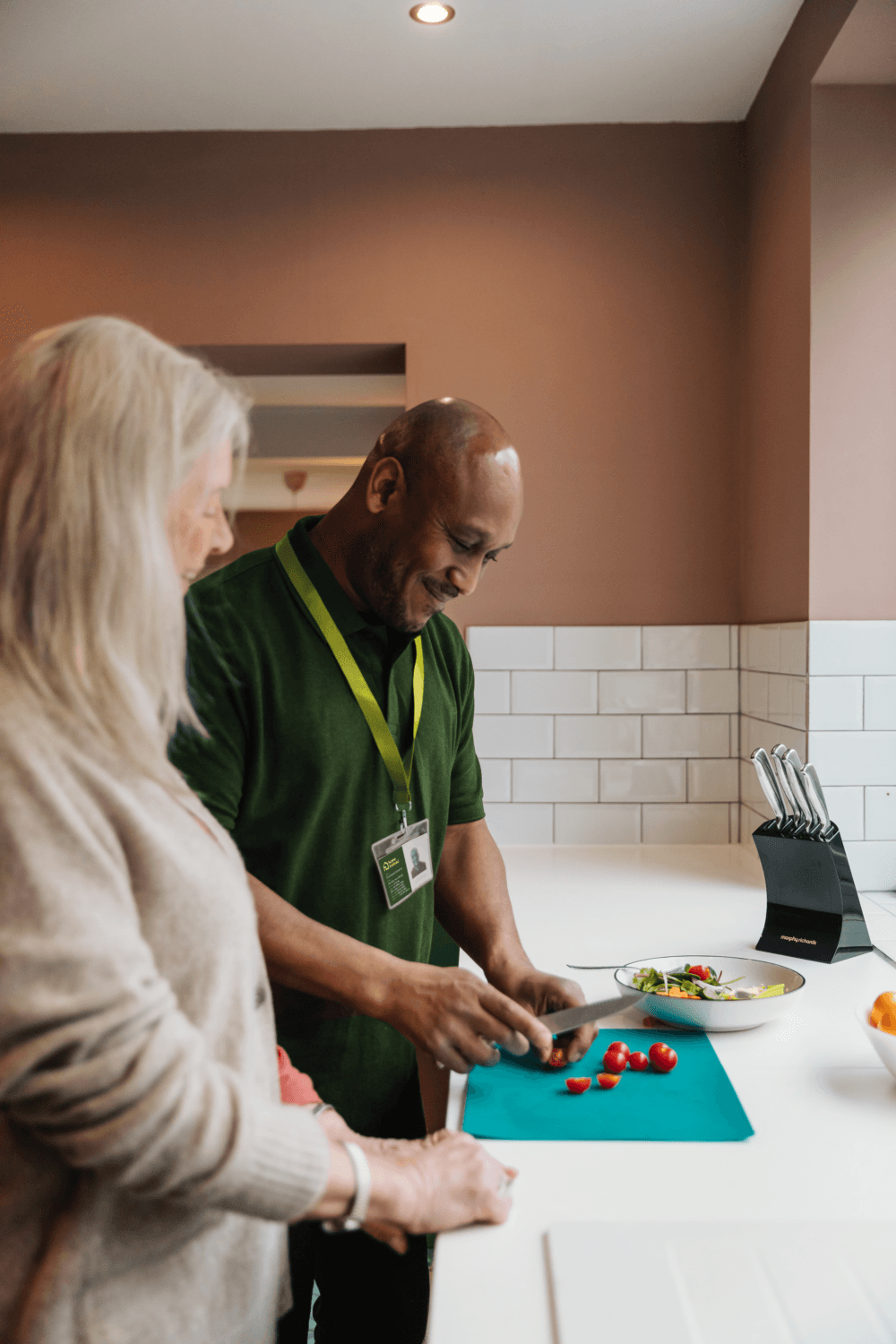
Creating a Safe and Supportive Home
As dementia progresses, home safety becomes more important. Remove rugs or loose cables that can cause falls. Fit handrails in bathrooms and along stairs. Use nightlights or sensor lights to prevent confusion after dark.
Clearly label cupboards, doors, and personal items. Keep essential areas such as the toilet or kitchen marked with easy-to-read signs. And avoid heavily patterned carpets or furniture, which can be visually disorienting.
Home Instead North Devon care professionals and managers regularly assess home environments and suggest adaptations. It’s not about stripping away independence—it’s about helping it last.

Managing Common Challenges Like Wandering or Sundowning
Some behaviours may be particularly concerning. People don’t set off to ‘wander;’ they are often aiming to go somewhere, but may forget where, or become disoriented while out. You could consider door alarms or GPS trackers if this becomes a challenge. You might also find that a scheduled afternoon walk reduces their desire to roam. Completing a Herbert Protocol form is also a good idea, so that in the event of your loved one going missing, all the information about their appearance, and places that are important to them, is quickly and easily accessible for emergency services.
If they’re experiencing “sundowning”—a type of confusion that worsens in the evening—lower the lights gradually, reduce noise levels, and avoid stimulants like caffeine. Calming routines such as a warm drink or a favourite TV programme can help smooth the transition to bedtime.
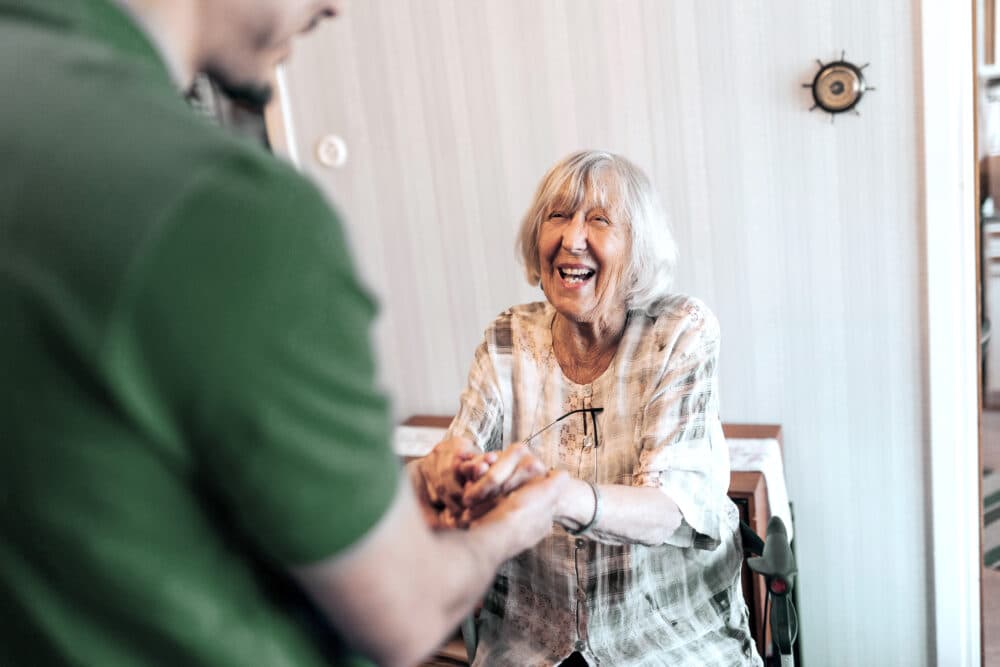
Helping with Meals, Hygiene, and Personal Care
As dementia progresses, appetite may drop or eating may become difficult. Try offering smaller, more frequent meals. Finger foods and soft textures can be easier to manage. Eating together, rather than watching from the side, provides gentle encouragement. Drinking sufficiently is very important; urinary tract infections can develop quickly due to dehydration, but the symptoms can be attributed to the dementia so not treated promptly.
Incontinence can also be managed with planning. Keep the bathroom accessible, encourage regular toilet visits, and use simple signage. Easy-to-remove clothing and absorbent products maintain comfort and dignity.
Bathing may bring hesitation due to discomfort, uncertainty, or past experiences. Always keep the space warm and private. Allow plenty of time, and offer choices—some may prefer sponge baths with soft cloths and no-rinse products. Always maintain modesty and speak reassuringly.

Planning Ahead: Conversations That Matter
It’s important to talk early about care preferences, financial matters, and legal permissions such as Power of Attorney. These conversations aren’t easy, but they ensure decisions reflect your loved one’s wishes.
Organisations like Age UK and Alzheimer’s Society offer tools to help guide these discussions. Writing things down can prevent stress and confusion later, especially if multiple family members are involved.
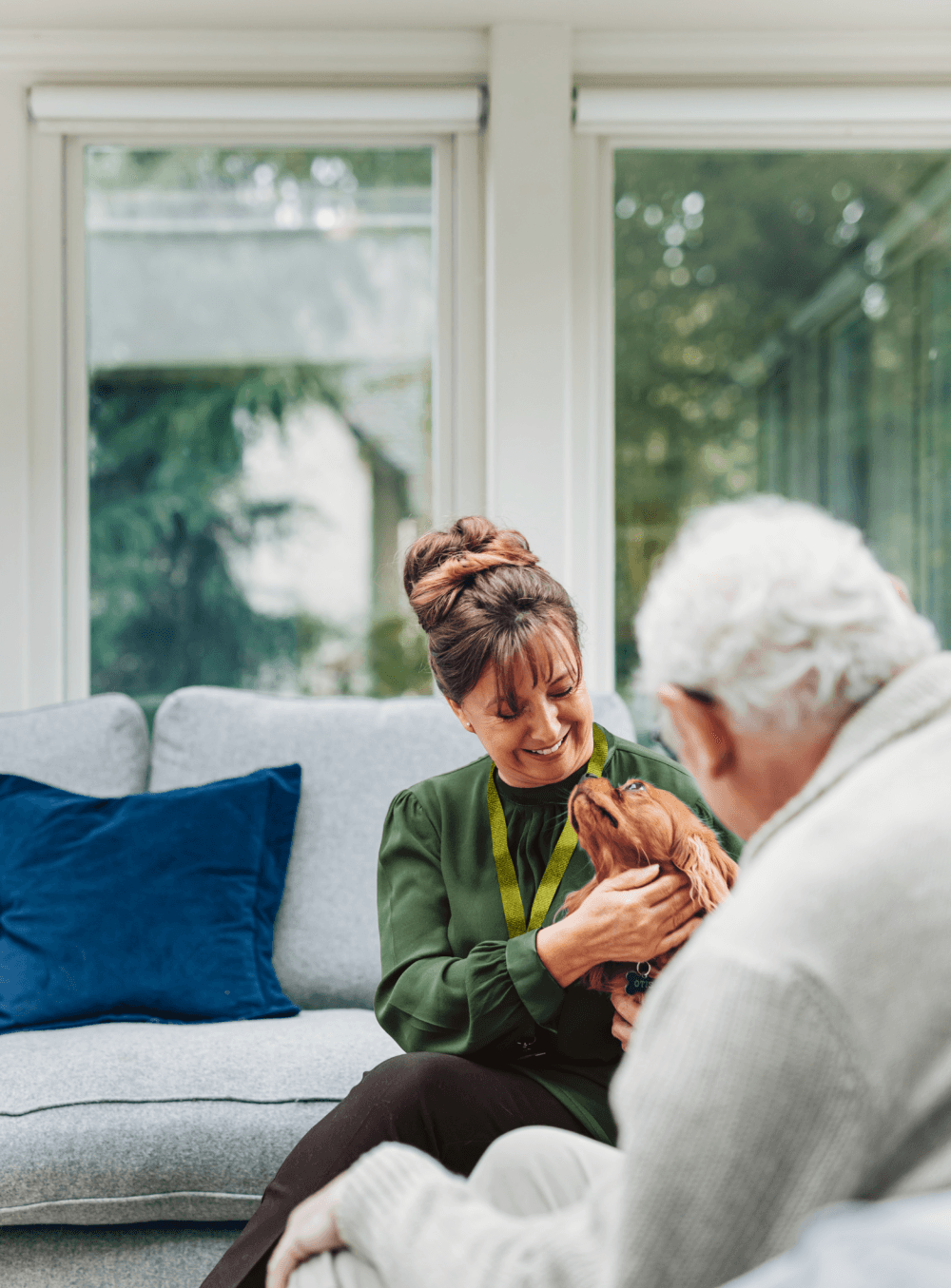
Don’t Forget: Your Wellbeing Matters Too
Caring can be emotionally and physically exhausting. Many carers experience fatigue, emotional strain, or feelings of isolation. Taking care of your own health is not selfish—it’s necessary.
Register as a carer with your GP, and ask your local council for a carer’s assessment. In North Devon, Devon Carers offers free advice, training, and access to support groups. Make time for rest, even if it’s just a short break with a cup of tea or a chat with a friend.
Books such as Contented Dementia by Oliver James and The Caregiver’s Guide to Dementia by Gail Weatherill provide helpful insights. Wendy Mitchell’s What I Wish People Knew About Dementia offers a rare and deeply personal perspective

Where to Find Support in North Devon
Devon Carers
📞 03456 434 435
📧 [email protected]
🌐 devoncarers.org.uk
Training, one-to-one support, and downloadable guides.
Memory Cafés
Held in Barnstaple, Bideford, South Molton, Braunton, Ilfracombe and Torrington. They offer relaxed spaces to connect with others living through similar experiences and access advice.
The Herbert Protocol
This free police initiative encourages carers to record essential information in case a loved one with dementia goes missing. Home Instead can provide these forms and help you to complete them with your loved one.
Other Trusted Organisations
- Alzheimer’s Society: 0300 222 1122 | alzheimers.org.uk
- Dementia UK & Admiral Nurses: 0800 888 6678 | dementiauk.org
- Age UK: 0800 055 6112 | ageuk.org.uk
- Young Dementia UK: 01993 776295 | youngdementiauk.org
- Dementia Dictionary: dementiadictionary.com
- Live Better With Dementia: dementia.livebetterwith.com
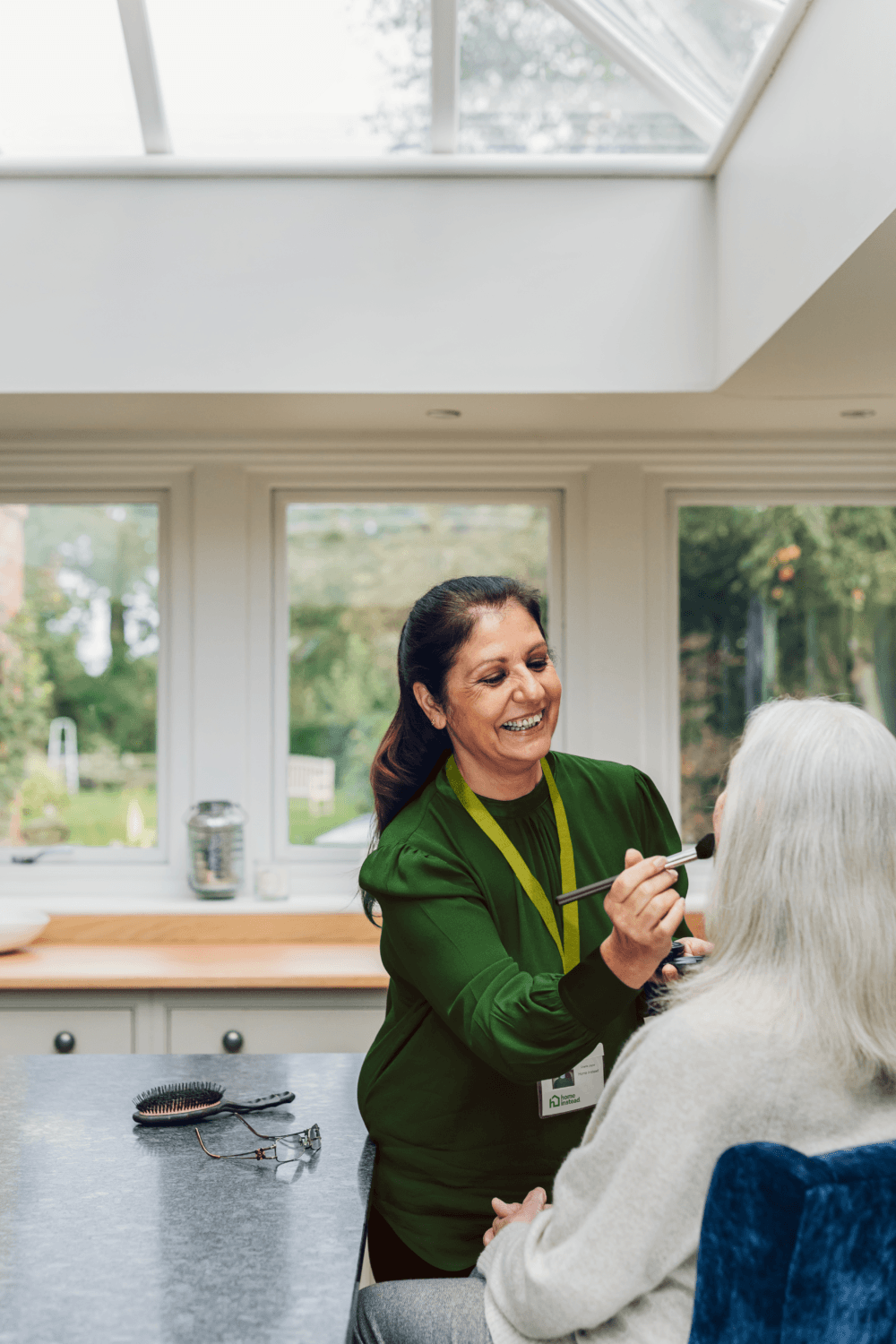
A Final Word of Encouragement
There’s no perfect way to care for someone living with dementia. What matters is kindness, patience, and doing your best with the information you have. Each small act—preparing a meal, reading a book together, helping them dress—is an act of love.
You’re not alone. Help is nearby. And if you ever need advice, a break, or hands-on support, the team at Home Instead North Devon & Exmoor is just a phone call away.
💜 Call us today on 01769 302003 or visit homeinstead.co.uk/north-devon-exmoor to find out how we can support your family.
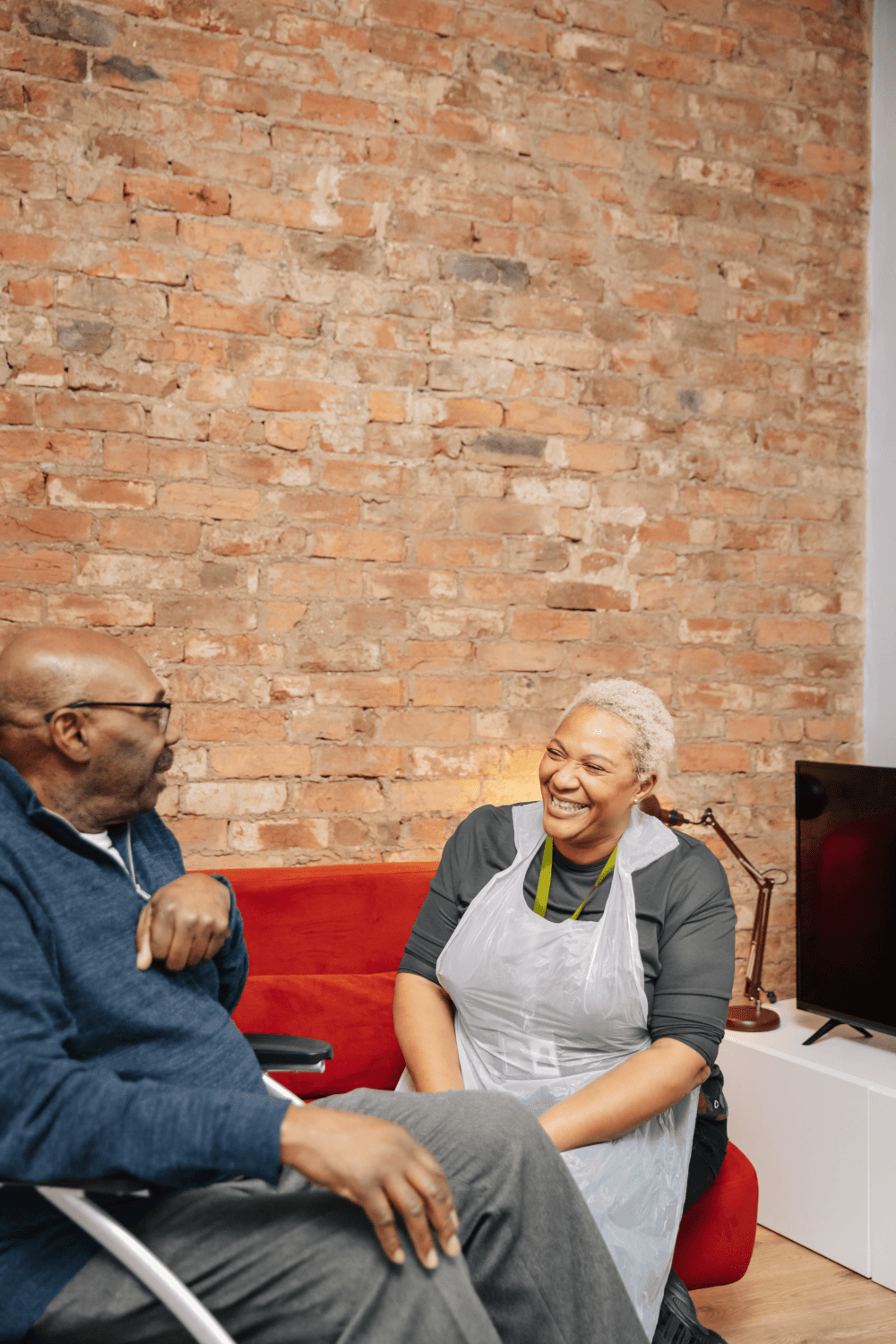
Areas We Serve
South Molton, Barnstaple, & the surrounding North Devon areas
EX31 1, EX31 2, EX31 3, EX31 4, EX32 0, EX32 7, EX32 8, EX32 9, EX33 1, EX33 2, EX34 0, EX34 7, EX34 8, EX34 9, EX35 6, EX36 3, EX36 4, EX37 9, EX39 1, EX39 2, EX39 3, EX39 4, TA22 9, TA24 7, TA24 8
Unit 1c, Lime Field, South Molton EX36 3BS, UK
https://www.homeinstead.co.uk/north-devon-exmoor/